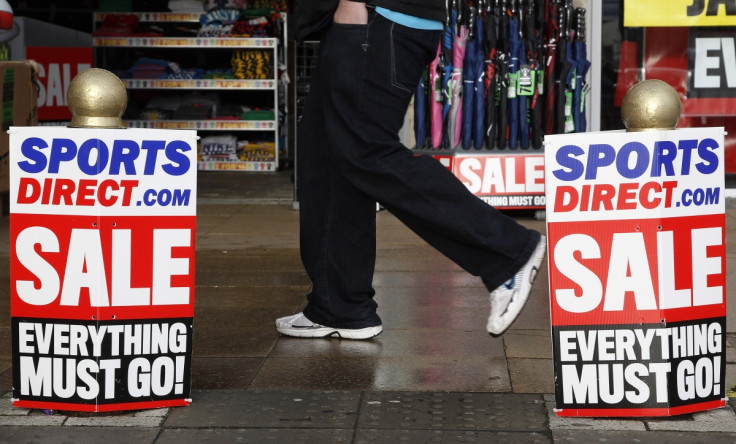Sports Direct shares plunge after profit warning with warm Christmas period blamed

Shares in Sports Direct tumbled over 8% midway through the session on 8 January, after the sports apparel retailer issued a profit warning. The FTSE 100-listed company said due to unusually warm weather over the Christmas period and a deterioration of trading conditions on the high street, it was no longer confident of meeting its target of earning £420m (€564m, $614m) before tax and other costs in the 12 months to the end of April.
Earlier in January, a number of high-street retailers including Next and Marks and Spencer claimed the warm weather throughout November and December 2015 had hit their quarterly results, with the latter posting a 5.8% decline in sales in its fashion division for the three months to December.
Sports Direct, which is 55% owned by founder and deputy chairman Mike Ashley, the owner of Newcastle United, said in light of the current conditions, its expectation for the full year has been for adjusted underlying earnings of between £380m and £420m.
Economists were left unimpressed by the development and retail analyst Nick Bubb tweeted: "At this rate, with the market cap down to £2.9bn, Sports Direct will be heading out of the FTSE 100 in March..."
The profit warning is the latest setback for the company, which in December 2015 became embroiled in a dispute with the Guardian, after the newspaper reported a number of the group's warehouse staff were being paid an effective rate of approximately £6.50 an hour compared with the statutory rate of £6.70.
Sports Direct refuted the claims, describing the criticism as "unfounded" and, on 31 December, the group announced that starting from 2016, its directly employed UK staff and directly engaged casual workers would be paid above the National Minimum Wage.
Ashley, who boldly claimed he was making a "New Year's resolution pledge" in the aim to become Britain's best high-street employer after John Lewis, said the increase in salary would cost the company approximately £10m. However, the move was dismissed by some analysts as a "PR stunt".
© Copyright IBTimes 2025. All rights reserved.






















